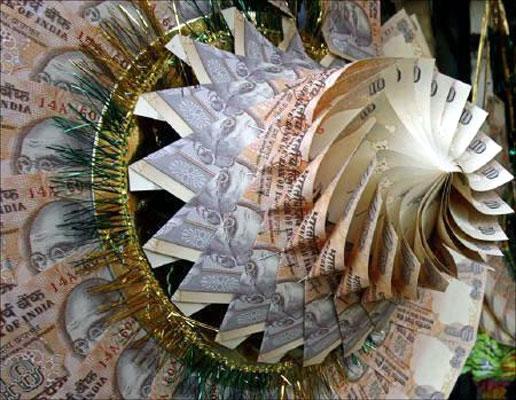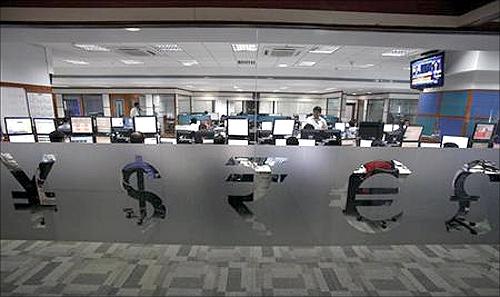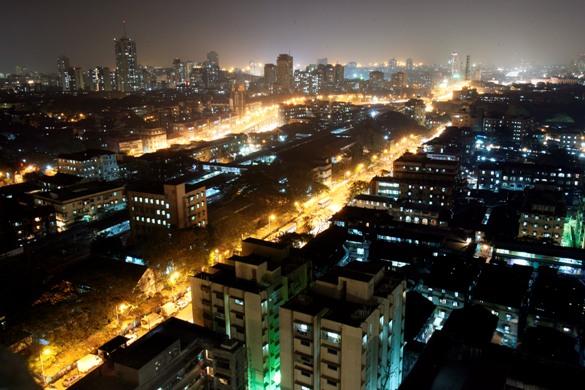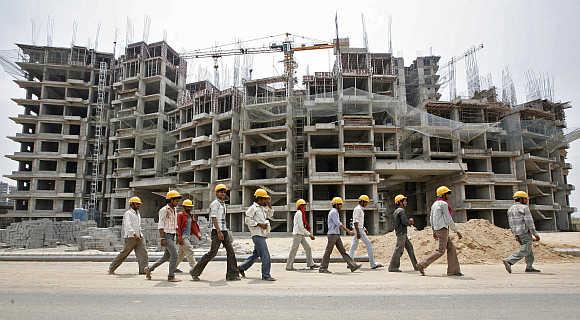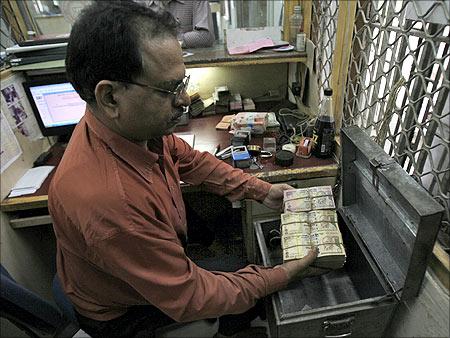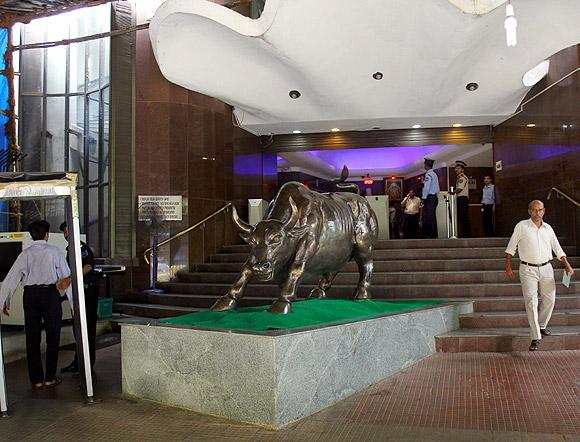 | « Back to article | Print this article |
Rupee fall: How NRIs can get richer
NRIs can lock into NRE/NRO fixed deposits, buy real estate and invest in long-term equity investments
While most people are concerned about the depreciating rupee, one group of people are happy about it - non resident Indians (NRIs).
They will get more value out of their investments. Till date, the rupee has depreciated by about 10 per cent against the dollar since January and 13 per cent since May.
This means for every dollar an NRI investor brings in, he will earn more rupees. Typically, a decline in the rupee’s value is also when remittances into the country see a spike.
A Surendran, head (international and retail banking) at Federal Bank, says remittances from NRI customers have increased substantially in the first quarter of the current financial year.
However, they are not as high as they were in May 2012, when the rupee witnessed a sudden fall. In May 2012, the rupee had touched 56.11, a fall of 6.5 per cent compared to the previous month.
Click NEXT to read more...
Rupee fall: How NRIs can get richer
“The fall has given NRIs an opportunity to get higher rupee amounts on conversion of their foreign currency funds. Those who invested the same dollar amounts about three months ago got about 11-12 per cent lower rupee amounts, as in the past two to three months the rupee depreciated by that much,” Surendran points out.
Bank deposits
According to bankers, the two most preferred investment avenues for NRIs are bank fixed deposits and real estate.
It is advisable for those who have invested in Foreign Currency Non Resident (FCNR) deposits - these are in foreign currencies like the dollar, yen, pound and euro - to continue to hold on to their investments rather than convert to the rupee now, since there is an indication that it could depreciate further, says Surendran.
Bank deposits are highly liquid and give assured returns. At current interest rates, it is possible to lock into high levels for longer periods in the case of Non Resident External (NRE) and Non Resident Ordinary (NRO) fixed deposits.
Click NEXT to read more...
Rupee fall: How NRIs can get richer
FCNR deposits can be used to insulate the currency from depreciation by keeping money in a foreign currency. However, high inflation can eat into the returns.
The interest earned on the NRE account is tax- free, whereas the interest earned on the NRO account is taxable, according to the bracket. On NRE and NRO fixed deposits of one year and above, most banks are offering eight-nine per cent.
On savings bank deposits, the rate is four per cent. The rates on FCNR deposits range between two per cent and eight per cent across tenures. They differ based on the foreign currency.
Click NEXT to read more...
Rupee fall: How NRIs can get richer
Real estate
While high property prices have been a deterrent for buyers, the current fall in the rupee could be a blessing in disguise for NRIs. On the back of a weak rupee, experts say, NRIs are showing a lot of interest in buying real estate.
NRIs are among the top five investor communities in real estate, says Ashutosh Limaye, head (research) at Jones Lang La’Salle. Being NRIs, they have a natural affinity towards India. The depreciation of the rupee against the dollar makes it more attractive for them to invest in real estate.
“NRIs are investing in residential real estate specifically in large cities. These are NRIs with professional or entrepreneurial ambitions, who intend to set up businesses in India in the future,” says Limaye.
Click NEXT to read more...
Rupee fall: How NRIs can get richer
When it comes to buying property, the rules are the same. For instance, one should check if the title is clear, especially if the house was inherited by the seller or jointly held before.
Second, make sure there are no electricity, water or other bills left unpaid by the seller towards the society. Also, make sure the house is free of any mortgage or loan and there is no litigation pending against the property.
Most NRIs buy property only from an investment point of view. Hence, they should look at commercial properties where the yields are a good 8-10 per cent higher than residential properties.
According to JLL, Navi Mumbai, Thane, Mumbai, Kolkata and Gurgaon are some regions of India that witnessed the highest appreciation in their capital values. The appreciation has been in the range of 55 and 75 per cent in different regions.
Anshuman Jagtap, advocate at Hariani & Company, says, “A few of our NRI clients have showed interest in buying commercial properties here as they want to encash on the rupee fall. However, NRIs investing here prefer pre-leased properties, with a clear title and licence and returns from that property are guaranteed, too.”
Click NEXT to read more...
Rupee fall: How NRIs can get richer
A pre-leased commercial property provides fixed income. Here, the aim is to lease out to quality tenants and earn lease income over a three- to five-year period. To invest in properties, NRIs can remit funds through normal banking channels, or use funds from their NRE/FCNR/NRO accounts in India.
There is no limit on how much they can invest in real estate. If they decide to rent out the property, the rent received can be maintained in NRE/NRO accounts.
Taxation in real estate for NRIs is the same as it would be for a resident Indian buyer. For instance, if an NRI sells the property before completing three years, then he will have to pay a short-term capital gains tax according to the bracket he falls under.
Whereas, if the property is sold after three years, then he will have to pay a long-term capital gains tax of 20 per cent with indexation. You can invest in a capital gains bond or in another residential property within two years to avoid capital gains tax.
Click NEXT to read more...
Rupee fall: How NRIs can get richer
Stocks
NRIs looking for long-term investments can invest in stocks and mutual funds. Currently, most NRIs are staying away from equity-related investments, according to Swapnil Pawar, chief investment officer at Karvy Wealth.
“NRIs prefer to invest in dollar-denominated fixed income instruments,” he says.
In case of NRI investors looking to invest in stock markets for a short term, there are concerns like the coming general elections and the low growth rate, says Amarendra Phatak, director (private wealth), Ambit Capital. That is why the advice is to keep a time frame of at least two-to-three years.
“In case of mutual funds, we would advise investing in a large-cap equity diversified fund. Whereas if the NRI is interested in direct stocks, we would advise him to put that money in staggered manner and not all at once,” adds Phatak. In case of equity investments, if the investment is held for less than a year, you have to pay 15 per cent short-term capital gains tax. But if you hold for one year more, you pay no tax. Dividends are exempted from tax.
INVESTMENT TIPS
Lock into NRE/NRO fixed deposits at the current rates, since going ahead rates are likely to decline
Keep some money in FCNR deposits to gain from the appreciation in dollar
Look at commercial property, since yields are higher than residential property
Keep an investment horizon of two-to-three years and invest in a staggered manner
